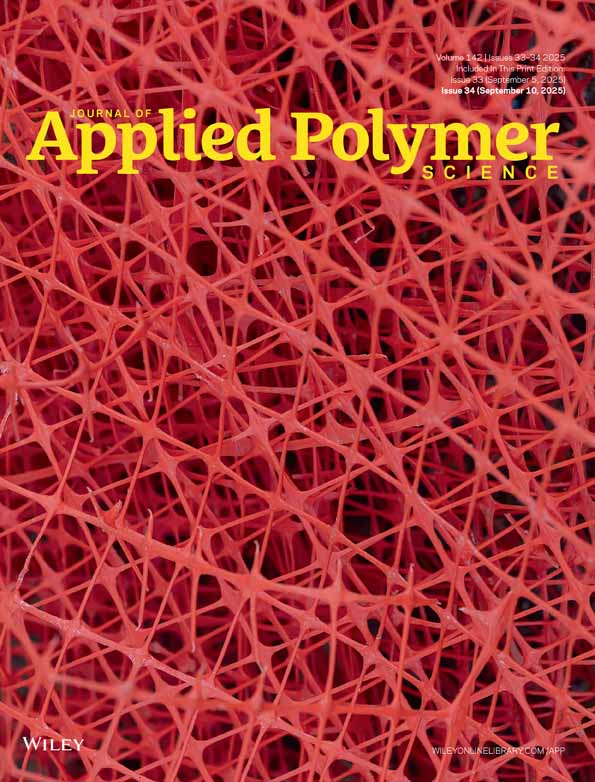Nitroxide-terminated poly(styrene-co-diethyl fumarates) and derived block copolymers
Abstract
Copolymerization of styrene (S) and diethyl fumarate (DEF) at 125°C in the presence of 2,2,6,6- tetramethylpiperidin-1-yloxyl radical (TEMPO) and initiated with a thermal initiator, 2,2′-azobisisobutyronitrile (AIBN), was studied. The molar fraction of DEF in the feed, FDEF, varied within 0.1–0.9. An azeotropic composition, (FDEF)A = 0.38, was found for the copolymerization under study. At FDEF = 0.1–0.4, a quasi-living process was observed, transforming to a retarded conventional radical copolymerization at a higher content of DEF in the initial mixtures. The obtained TEMPO-terminated S-DEF copolymers were used to initiate polymerization of styrene. Poly(styrene- co-diethyl fumarate)-block-polystyrene copolymers were prepared with molecular weight distributions depending on the amount of inactive polymer chains in macroinitiators, as indicated by size-exclusion chromatography. A limited miscibility of the blocks in the synthesized block copolymers was revealed by using differential scanning calorimetry. © 2002 Wiley Periodicals, Inc. J Appl Polym Sci 84: 2432–2439, 2002




